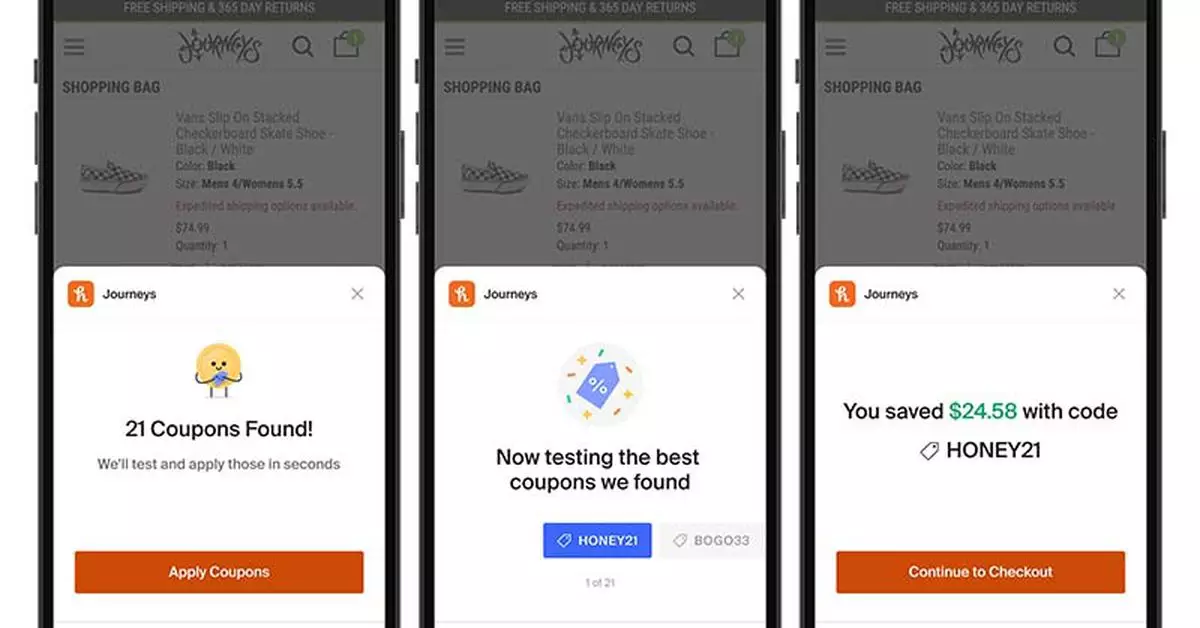In recent months, PayPal’s Honey browser extension has come under fire for its business practices, sparking debate on whether it genuinely aids consumers or operates as a hidden scam. The premise of Honey is appealing: a tool that promises to scour the internet during online shopping to unearth the best coupon codes available, ensuring users never pay full price. However, claims by various voices, including YouTuber MegaLag, suggest that this tool may not be operating in the best interests of its users or the influencers whose affiliate links it reportedly hijacks.
At its core, Honey is designed to offer convenience, popping up coupon code suggestions during the checkout process. Unfortunately, according to MegaLag’s recent video analysis, it frequently misses the mark, often failing to uncover the best deals, or only presenting Honey-branded discount codes that may not be the most beneficial for users. This discrepancy raises questions about the efficacy of a service that markets itself as a comprehensive solution for online savings.
The claims made by MegaLag highlight a broader concern: Honey’s refusal to embrace transparency in its algorithm. While the company asserts that it finds “every working promo code on the internet,” the evidence suggests otherwise. By neglecting better coupon options in favor of its own partnerships, Honey may be prioritizing its profit over the actual savings of its users. This creates a misleading narrative around the extent of savings that the extension genuinely delivers.
One of the most alarming accusations levied against Honey is its approach to affiliate marketing. MegaLag alleges that Honey infringes on influencers’ earnings by replacing their affiliate links with its own tracking links. When a user clicks on an influencer’s link leading to a store, if Honey is simultaneously activated, it reportedly swaps out the original link, ensuring Honey grabs the credit for sales instead of the influencer. This practice not only undermines the ability of content creators to earn their deserved commission but also raises ethical questions about the fairness of competing in the influencer space.
The response from Honey—and PayPal’s VP of corporate communications Josh Criscoe—centers on industry-standard practices concerning last-click attribution. While they assert that their actions are within typical boundaries for such systems, many see this as an insufficient defense. Consumer trust, once lost, is challenging to regain, especially when users believe they are supporting their favorite influencers via affiliate links that are then usurped by third parties.
Beyond the immediate accusations of deception, the implications of these practices extend deeper into the relationship between consumers and influencers. If users begin to feel that tools like Honey are depriving influencers—who often provide valuable content and recommendations—from their rightful compensation, it could engender a sense of distrust not only towards Honey but also towards affiliate marketing as a whole.
Many influencers rely on affiliate marketing as a primary revenue source, and if major tools siphon off these revenues, it could lead to a significant re-evaluation of the influencer-business landscape. Content creators may pivot away from promoting tools like Honey, seeking alternatives that honor their affiliate links, ultimately affecting the consumers who might have benefited from shared deals and recommendations.
While PayPal Honey markets itself as a beneficial tool allowing consumers to save money, the growing allegations against it highlight serious concerns regarding its operational ethics and transparency. Users deserve to know precisely how the tools they use impact their savings and who is truly benefiting from those transactions. As the digital marketplace evolves, it will be crucial for platforms, companies, and users to advocate for greater accountability and fair practices to restore trust in the ever-complex world of online shopping and influencer marketing. Hence, consumers should remain vigilant and informed, making conscientious decisions about the tools they choose to engage with in an increasingly complicated digital landscape.

